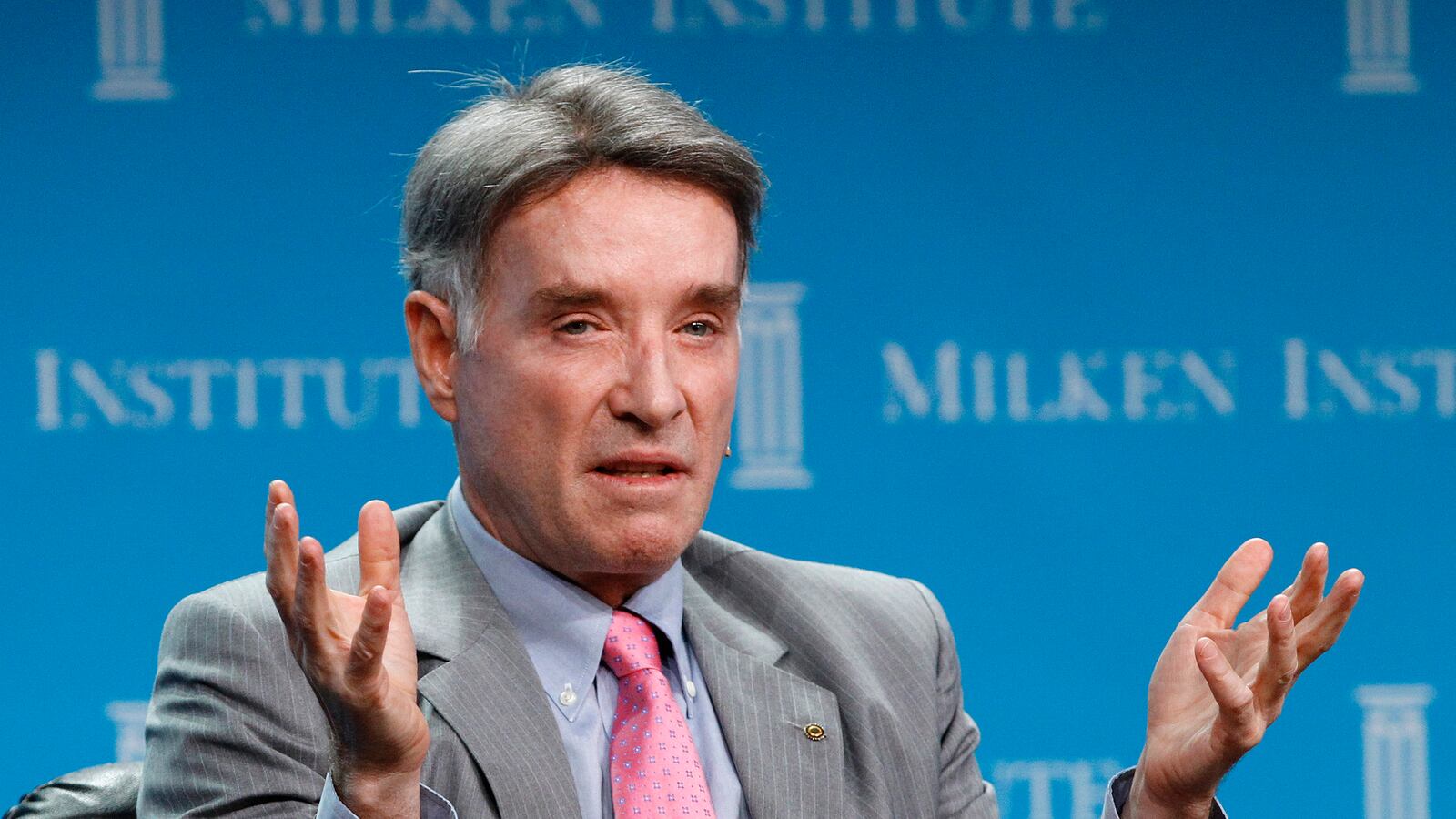Booze, dreadful roads, shoddily made cars, and daredevil drivers account for many of Brazil’s 40,000 motor-vehicle deaths each year. Add testosterone, a fancy sports car, and a 20-year-old billionaire’s son used to speeding through life with the wind at his back, and you have the makings of a disaster. A distinctly Brazilian disaster.

In March 2012, Thor Batista was on a joyride on interstate highway 040 with a friend in his Mercedes-Benz SLR McLaren, a gift from his father, billionaire oil and energy magnate Eike Batista. Highway 040 is the main artery connecting Brazil’s storied seaside metropolis Rio de Janeiro with a steep sierra, a favored weekend getaway and summer retreat for well-heeled Cariocas, as Rio natives are known. The route cuts through the Baixada Fluminense, a low-lying slum-ringed suburb that is home to many of Rio’s maids, nannies, and construction workers who commute to work along the busy road. Batista was speeding toward Rio through the flats in Xerem, some 20 miles from town, when he struck Wanderson Pereira dos Santos, hurling the 30-year-old trucker’s assistant off his bicycle to his death.
It might have been another tragic statistic in the Brazilian-traffic body count. But this was more than just a pampered kid on a tear. Eike Batista, Thor’s father, is one of the wealthiest people in the country and a prominent philanthropist who invested millions in social programs. He took pride in helping struggling Brazilians like Pereira dos Santos.
The tale of the mogul’s son and the bricklayer grabbed headlines and ricocheted through social media in Brazil. Not least because Batista himself recently had fallen on difficult times—the book value of his vast holdings in oil and gas, minerals, and infrastructure plummeted from $34.5 billion in March 2012 to less than $5 billion a year later. Ranked last year by Forbes as the world’s seventh-richest man, Batista has since tumbled to the 100th position.
The Brazilian justice system is notoriously slow. But in the media storm that followed the traffic accident, the Batista trial moved swiftly. Everyone wanted to know the outcome of in this tropical version of Bonfire of the Vanities. On June 5, 2013, Thor Batista was found guilty of involuntary manslaughter and slapped with a $450,000 fine.
At the trial, Thor Batista’s defense team described how he had stayed at the scene of the accident to help revive the stricken cyclist, but it was too late for Pereira dos Santos, who died instantly upon impact, his body shattering the Mercedes’s windshield. One forensic investigator later calculated that at the time of the accident, Batista was driving at about 84 miles per hour, well over the 68-mph speed limit. However, the judge disallowed the report because it was not introduced to the trial record in a timely manner. Defense lawyers countered that Batista never exceeded the legal speed limit and that he could not have avoided the cyclist.
Criminal judge Daniela Barbosa Assumpção de Souza was unmoved. In her ruling, she noted the nine traffic violations that the young Batista had racked up behind the wheel, six of them for speeding. She also asked for further investigation into allegations that Thor and Eike Batista inappropriately paid about $50,000 to a civil-defense rescue worker for “consoling” the cyclist’s family after the fatal accident, raising suspicions of a payoff. Nonetheless, the judge did not send Batista to jail, ordering him instead to perform two years of community service. Still, the legal battle is not over. Batista’s lawyers have appealed the verdict, while Pereira dos Santos’s family announced plans to pursue a legal case.
However it turns out, the case is a bitter blow for the patriarch. Until just last year, Eike Batista, now 56, seemed unflappable. He had invested hundreds of millions in extracting offshore oil and gas. He was digging for high-grade coal in Colombia. And he had broken ground on Porto Açu, a massive deepwater port meant to break the logjam of Brazilian shipping. With docking for up to 40 deep-draft cargo ships, the Açu superport was projected to house Latin America’s biggest shipyard, steelworks, rail terminals, and oil-storage tanks, plus a city of a 250,000 residents raised from scratch.
The plan was typical Eike—pronounced “Ike”—as Brazilians call him: bold, supersize, almost impulsively ambitious, and, finally, a leap of faith.
“I see myself as a knight of efficiency. If there is something that isn’t efficient, I’m going to break it down,” he says. “The Google guys do that. Steve Jobs was famous for that. They look for ways to make life more user-friendly, and that’s how I see myself.”
He seemed the perfect emblem for the new Brazil. Tough, frighteningly ambitious, politically savvy, and willing to take outsize risks. In part he did, digging into his own pocket to fuel his energy and logistics startups, and talking investors into taking multimillion-dollar stakes in his portfolio of companies, all bearing the initial X, a symbol for “multiplying wealth.” When the moneymen balked over his oil and gas startup, OGX, Batista sweetened the deal with $370 million of his own money, bagging ten times that, $3.7 billion, in 2008.
But as his debts mounted and production targets slipped, the skeptics frowned. Critics derided him as a master of road shows and an impresario of spreadsheets. “The person who has made the most money from PowerPoint after Bill Gates” went one joke in the Brazilian financial world.
Batista also is a rarity in a country where the superrich shun publicity or pretend they are like everyone else. Unashamed about his wealth—made from sweat, not speculation, he always insisted—he has worked hard at leveraging fortune into celebrity. Back in the ’90s, when he was already fabulously rich, Batista was known and often lampooned as the heat-seeking scion of a top Brazilian mining official and the husband of a carnival queen. Mr. Luma de Oliveira, they called him, after his supernova (now ex-) wife. Other moguls collected Picassos. Batista, a onetime powerboat racer, favored cars and yachts. He once kept a Lamborghini and a silver Mercedes-Benz SLR McLaren—the one he later gave to his son—in his living room.
More recently, whenever he was asked about his increasingly high-stakes industrial investments, the self-styled Brazilian mogul would fire back with a stock answer. “These are idiot-proof assets,” he would say about his multibillion-dollar plays in oil and gas, minerals, and infrastructure. The suggestion was that they were money in the bank, too good to fail. He publicly predicted he would soon pass Mexican telecom mogul Carlos Slim to become the world’s wealthiest tycoon. That was then. On Monday, Batista was forced to deny that he was defaulting on his debts.
His son’s legal woes have only salted the wounds. Though Eike Batista has kept a low profile, he maintains that Thor did not break the law, though he offered a reportedly generous, undisclosed sum to the Pereira dos Santos family. Thor’s mother, Luma de Oliveira, has gone further, claiming Thor is the victim of a “scandalizing” media and class bias. “This was the judge’s decision and we will appeal. Just as it’s clear that my son was judged by his economic and social condition,” she posted on Facebook.






